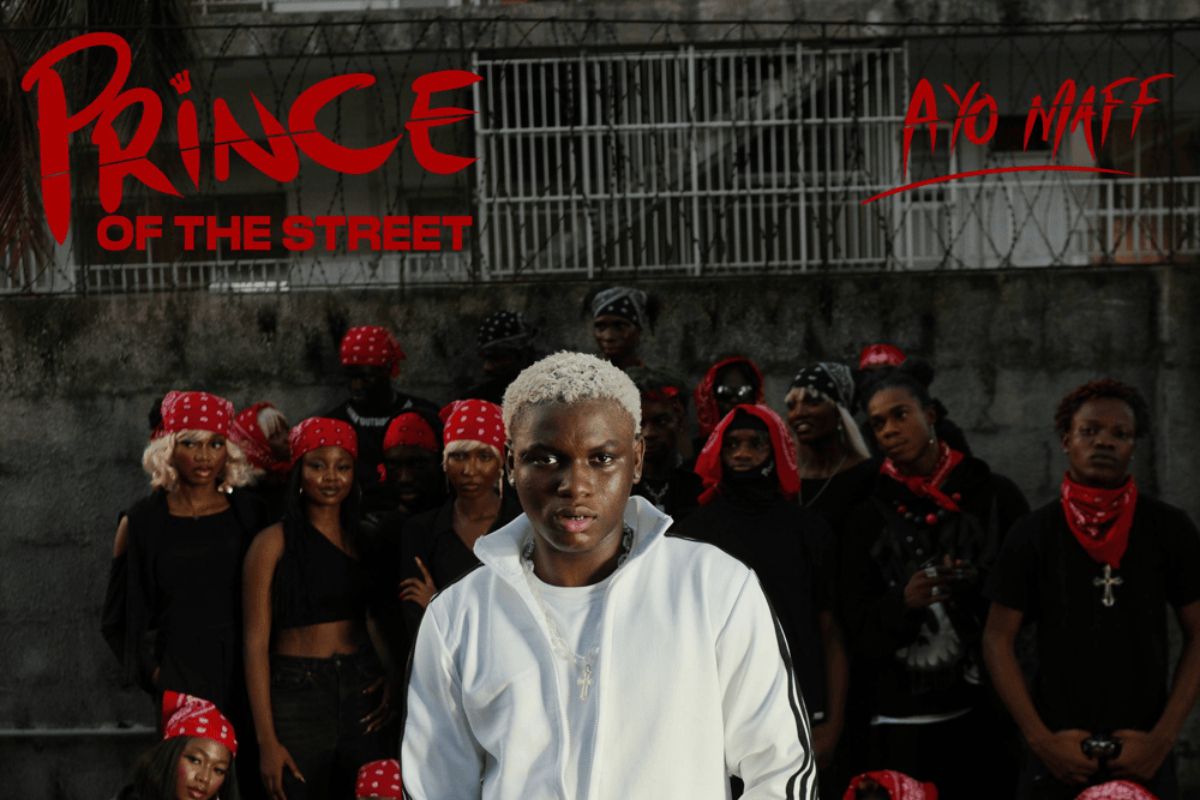Ayo Maff shares debut LP 'Prince of the Street', says he wants to speak for the people

Ayo Maff Releases Debut LP 'Prince of the Street,' Aims to Amplify the Voices of the People
Nigerian musician Ayo Maff has officially launched his debut LP, 'Prince of the Street,' a project he describes as a dedication to voicing the experiences and realities of everyday Nigerians. The album, released this week, sees the fast-rising artist solidifying his position as a chronicler of street life and a messenger for those navigating the country's socio-economic challenges.
Inspiration Drawn from Listener Connection
Maff spoke to Apple Music's Africa Now Radio, highlighting the profound impact of connecting with his listeners. He explained that personal anecdotes from fans, detailing how his music has helped them cope with difficult life phases, serve as a primary motivation. "It's when I meet a fan and he tells me how much my music has helped him go through a phase of his life - when he was depressed and really didn’t know what to do," Maff stated. "I've met a couple of fans who tell me that, and also fans who tell me: 'Your music made me happy, your music changed my mood, your music is one of the reasons that keeps me going'." He emphasized that this connection fuels his commitment to creating relatable music that acknowledges shared struggles.
'Prince of the Street': A Reflection of Reality
'Prince of the Street' directly addresses the realities faced by young Nigerians, touching on economic hardship, emotional complexities, and the everyday struggles within disadvantaged communities. The album aims to resonate with listeners by presenting authentic narratives and offering a sense of solidarity. Maff's lyrics and melodies are steeped in the sounds and stories of his upbringing, creating a distinct sonic landscape that reflects the pulse of the streets.
Influence of Bariga and Musical Heritage
In a separate interview with Nandi Madiba, Maff discussed how his upbringing in Shomolu Bariga significantly shaped his musical perspective. "Yeah, growing up in Bariga helped me – and I would even say it's influenced my music in lots of ways," he said. "It allowed me to sing the reality, where I'm from, and the genuine lifestyle." He emphasized his commitment to authenticity, stating that he only sings about experiences he knows firsthand, ensuring his music remains grounded in genuine experiences.
Homage to Olamide and Hip-Hop Pioneers
The album features a track titled 'Baddo's Song,' a tribute to Nigerian hip-hop icon Olamide. Maff acknowledges Olamide and other pioneers as crucial figures who paved the way for his generation of artists. "Big up to the ‘Big OG’s!’ - because they opened the way for us," he stated. "Without them, I don't think there's any way we could be in this space and be who we are with what we have today. They opened the way for us, so big ups to them." This recognition highlights the importance of acknowledging the historical context and lineage within Nigerian music.
Expert Perspective: The Role of Street Narratives in Nigerian Music
Dr. Kemi Ogunleye, a lecturer in Popular Culture at the University of Lagos, comments on the significance of artists like Ayo Maff. "Street narratives have always been a vital part of Nigerian music, from the early days of Afrobeat to the contemporary sounds of Afrobeats and hip-hop. Artists who authentically represent the realities of everyday life, particularly those from marginalized communities, play a crucial role in reflecting the nation's diverse experiences. Ayo Maff's 'Prince of the Street' continues this tradition, offering a platform for voices that are often unheard. His ability to connect with listeners on a personal level, as evidenced by his comments about fan interactions, suggests he is tapping into a deep-seated need for relatable and authentic storytelling."
Historical Context: Evolution of Street Music in Nigeria
The emergence of "street music" as a prominent genre in Nigeria can be traced back to the socio-political realities of the country. Historically, music has served as a powerful tool for social commentary and a means of expressing the struggles and aspirations of the masses. From Fela Kuti's revolutionary Afrobeat, which challenged government corruption and social injustice, to the contemporary sounds of artists like Olamide and Naira Marley, who document the realities of street life, Nigerian music has consistently reflected the nation's diverse experiences. Ayo Maff’s work builds upon this legacy, offering a fresh perspective on the challenges and triumphs of young Nigerians.
Looking Ahead
Ayo Maff describes 'Prince of the Street' as a starting point in his mission to share his creative vision with the world. The album is available on all major streaming platforms. It remains to be seen how the project will be received by a wider audience, but early indications suggest that Maff's commitment to authenticity and relatable storytelling has struck a chord with listeners.
Originally sourced from: pulse Ng
